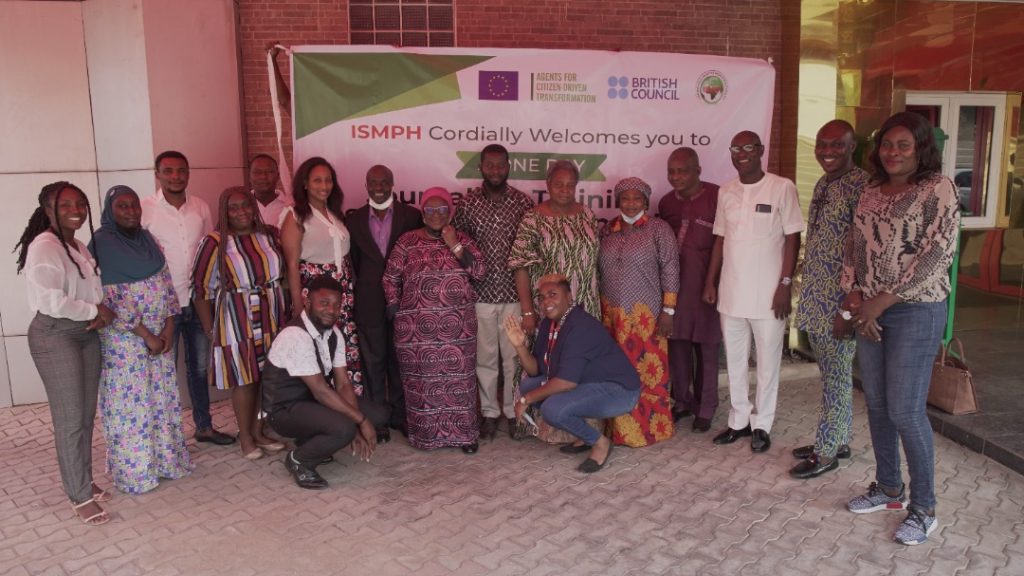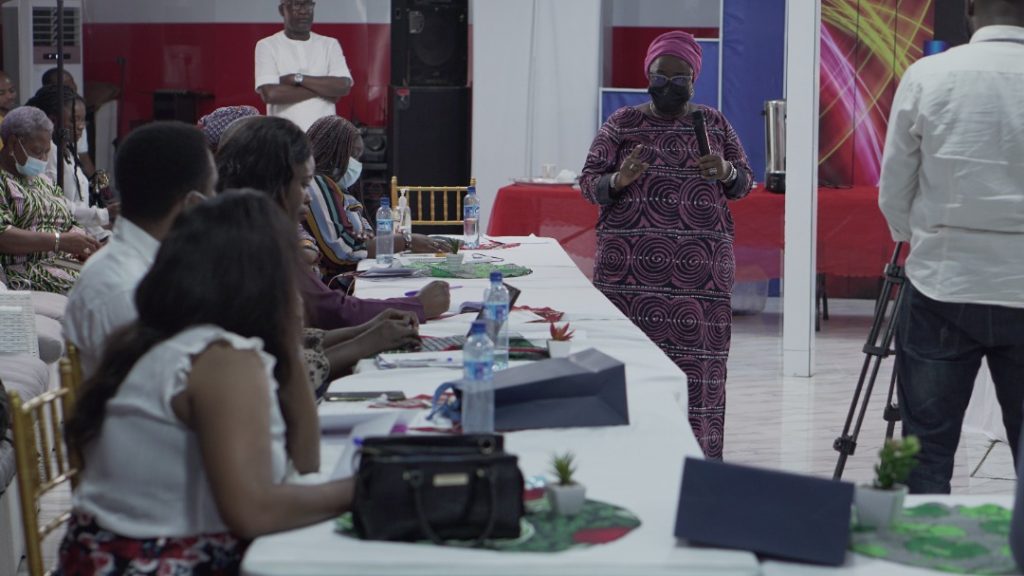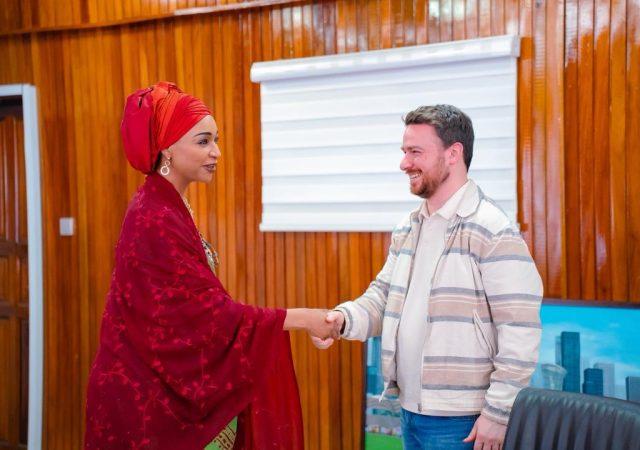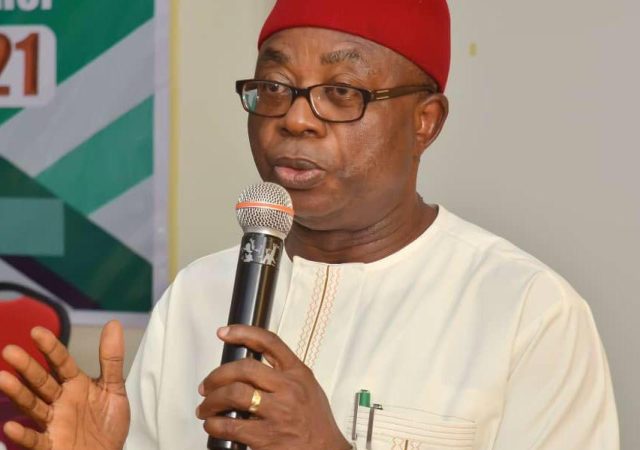
By Sunday Oyinloye
Relief may have come the way of vulnerable mothers whose children are suffering from Severe Acute Malnutrition (SAM) in Bwari and Kwali area councils of Abuja, the Federal Capital Territory as International Society of Media in Public Health (ISMPH) begins Media Advocacy/Empowerment strategy for the prevention and management of SAM in the two local governments as the implementing organization for European Union Agents for Citizen- Driven Transformation (EU-ACT) funded project.
In order to ensure media visibility of the project and ensure that Journalists report from the point of knowledge, ISMPH during the week in Abuja organized one day training for the media where Journalists were briefed about the project and SAM, and also impacted with more knowledge in health reportage.
According to a 2017 United Nations Children’s Education Fund (UNICEF) report, an estimated over 2.5 million Nigerian children under age of five suffer from Severe Acute Malnutrition (SAM), with nearly 420,000 children dying annually as a result of this extremely dangerous condition that makes children nine times more likely to die from common childhood diseases such as diarrhea, pneumonia and malaria.
Unknown to many Nigerians, out of this disturbing statistics, Abuja, the seat of the Federal Government of Nigeria also has its own share of children who are severely malnourished. It is in the light of this that European Union Agents for Citizen- Driven Transformation has funded the project.

The target groups of the project are mothers from low-income households in vulnerable communities, uneducated/unemployed/single rural dwelling mothers, and mothers living with disability and struggling to provide care for their children.
The project involves livelihood empowerment programs for mothers and girls for improved economic well-being, supporting a Media Group for Child Health/Nutrition, empowering the Media for accurate reportage of issues of Nutrition in Nigeria, using waste to wealth methods production of essential oils from local plants among others. It aims at improving the mothers’ nutritional knowledge and access to information on prevention of SAM.
Presenting a paper on “The Media and Severe Acute Malnutrition”, Dr. Tunde Akanni of Journalism Department, Lagos State University, Ojo, says ‘’SAM could be seen within the context of SDGs no poverty, zero hunger, good health and wellbeing”.
He advised the media to focus more on issues affecting the country particularly challenges being faced by the vulnerable in communities rather than foreign stories adding that training and retraining are fundamental to professionalism.
He took the journalists through the rudiments of News writing, Features, Editorials, Opinions and Headlines casting and challenged participants to be accurate, factual, clear, brief, coherent, objective .and balance in their reportage.
On the role of the media in fighting SAM, Dr. Akanni said “without the media, the consciousness and awareness will not be there”
He said Journalists should continue to update their knowledge as new health challenges manifest adding that the media should also focus more on challenges at home particularly the plight of Internally Displaced People.
“The plight of the vulnerable must be on the front burner; the media should visit Internally Displaced People camps and come up with reports that will shake the world”
He disclosed that the crisis in some parts of the country has also contributed to the challenge of malnutrition.
In her remarks, the Executive Director of ISMPH, Moji Makanjuola said her organization has worked in some states of the federation and saw shocking images of children suffering from SAM stressing that with the support of the media, ISMPH would change the narrative.
She disclosed that while many children are suffering from SAM, their mothers seem to be at crossroads because of their economic condition adding that much could be done to bring these mothers out of poverty which is the focus of the project being carried out in the two local governments’ areas.
Makanjuola who advised that everything possible must be done to start the production of Ready –to-use therapeutic food (RUTF) locally said it is unfortunate that some men are using the limited RUTF available for purposes which they are not meant for. She however believes that things can still be turned around.
“I am a strong believer that the media can change the position of the health delivery system in Nigeria” she said.
Earlier, the Programs Director of ISMPH, Solomon Dogo briefed the Journalists about his organization and objectives of the training.
He said between 2018-2021, ISMPH, addressed the issue of SAM in 6 states adding that ISMPH would use existing media network to generate public awareness for the EU-ACT project.
In his words” We want to use the media’s influence to set the issue of malnutrition on the front burner of engagements in the build up to 2023 elections”.
The general overview of the project and expectations from the media was given by the Programs Officer, Bukola Smith. According to her, the media is expected to amplify the challenges of SAM in the FCT to attract government attention and resources, amplify the project’s intervention, and set agenda for sustainable empowerment of rural women










